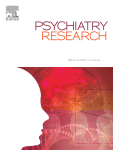This study investigated the prevalence of and factors associated with complete mental health (CMH) among a nationally representative sample of Canadians who had contact with child welfare services before age 16. CMH was defined as (1) the absence of suicidality, mental illness, and substance abuse or dependence in the preceding year; (2) happiness or life satisfaction almost every day in the preceding month, and; (3) social and psychological well-being almost every day in the preceding month.
Data came from the 2012 Canadian Community Health Survey – Mental Health. A subsample of 732 adults with child welfare contact during childhood was analyzed using bivariate chi-square analyses and multivariate logistic regression models. Overall, 63.5% of adults with child welfare contact during childhood were in CMH. Those with a post-secondary degree, who were married, who had a confidant, and who used religion or spirituality to cope with daily challenges were more likely to be in CMH. The odds of CMH were higher among those without chronic pain, functional limitations, and a history of depression, anxiety, or substance abuse or dependence.
The results of this study indicate significant resiliency among adults following contact with child welfare services during childhood. Implications for appropriate interventions are discussed.

